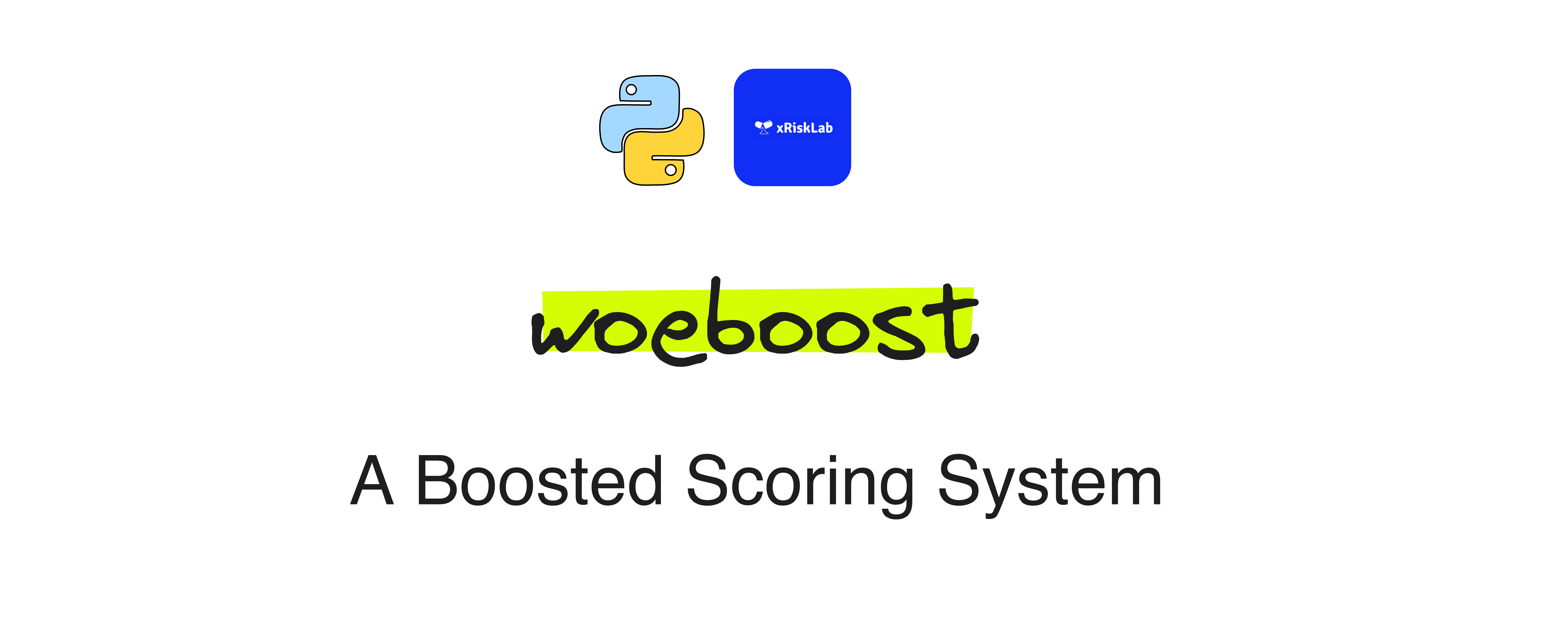Author: xRiskLab
Version: v1.0.1
License: MIT License (2024)
WoeBoost is a Python 🐍 package designed to bridge the gap between the predictive power of gradient boosting and the interpretability required in high-stakes domains such as finance, healthcare, and law. It introduces an interpretable, evidence-driven framework for scoring tasks, inspired by the principles of Weight of Evidence (WOE) and the ideas of Alan M. Turing.
- 🌟 Gradient Boosting with Explainability: Combines the strength of gradient boosting with the interpretability of WOE-based scoring systems.
- 📊 Calibrated Scores: Produces well-calibrated scores essential for decision-making in regulated environments.
- 🤖 AutoML-like Enhancements:
- Infers monotonic relationships automatically (
infer_monotonicity). - Supports early stopping for efficient training (
enable_early_stopping).
- Infers monotonic relationships automatically (
- 🔧 Support for Missing Values & Categorical Inputs: Handles various data types seamlessly while maintaining interpretability.
- 🛠️ Diagnostic Toolkit:
- Partial dependence plots.
- Feature importance analysis.
- Decision boundary visualization.
- 📈 WOE Inference Maker: Provides classical WOE calculations and bin-level insights.
- 🔍 Initialization: Starts with prior log odds, representing baseline probabilities.
- 📈 Iterative Updates: Each boosting iteration calculates residual per each binned feature and sums residuals into total evidence (WOE), updating predictions.
- 🔗 Evidence Accumulation: Combines evidence from all iterations, producing a cumulative and interpretable scoring model.
- 💡 Interpretability: Every model step adheres to principles familiar to risk managers and data scientists, ensuring transparency and trust.
- ✅ Alignment with Regulatory Requirements: Calibrated and interpretable results meet the demands of high-stakes applications.
- ⚡ Flexibility: Works seamlessly with diverse data types and supports customizations for complex datasets, including multi-threading for CPU.
Install the package using pip:
pip install woeboostBelow we provide two examples of using WoeBoost.
from woeboost import WoeBoostClassifier
# Initialize the classifier
woe_model = WoeBoostClassifier(infer_monotonicity=True)
# Fit the model
woe_model.fit(X_train, y_train)
# Predict probabilities and scores
probas = woe_model.predict_proba(X_test)[:, 1]
preds = woe_model.predict(X_test)
scores = woe_model.predict_score(X_test)from woeboost import WoeBoostClassifier
# Initialize the classifier
woe_model = WoeBoostClassifier(infer_monotonicity=True)
# Fit the model
woe_model.fit(X_train, y_train)
X_woe_train = woe_model.transform(X_train)
X_woe_test = woe_model.transform(X_test)Technical Note: Overview of the WoeBoost modules.learner.py: Core module implementing a base learner.classifier.py: Module for building a boosted classification model.explainer.py: Module for explaining the model predictions.
This project is licensed under the MIT License - see the LICENSE file for details.
-
v1.0.1
- Adjusted feature importance default plot size and added minor updates of documentation.
-
v1.0.0
- Initial release of WoeBoost.






